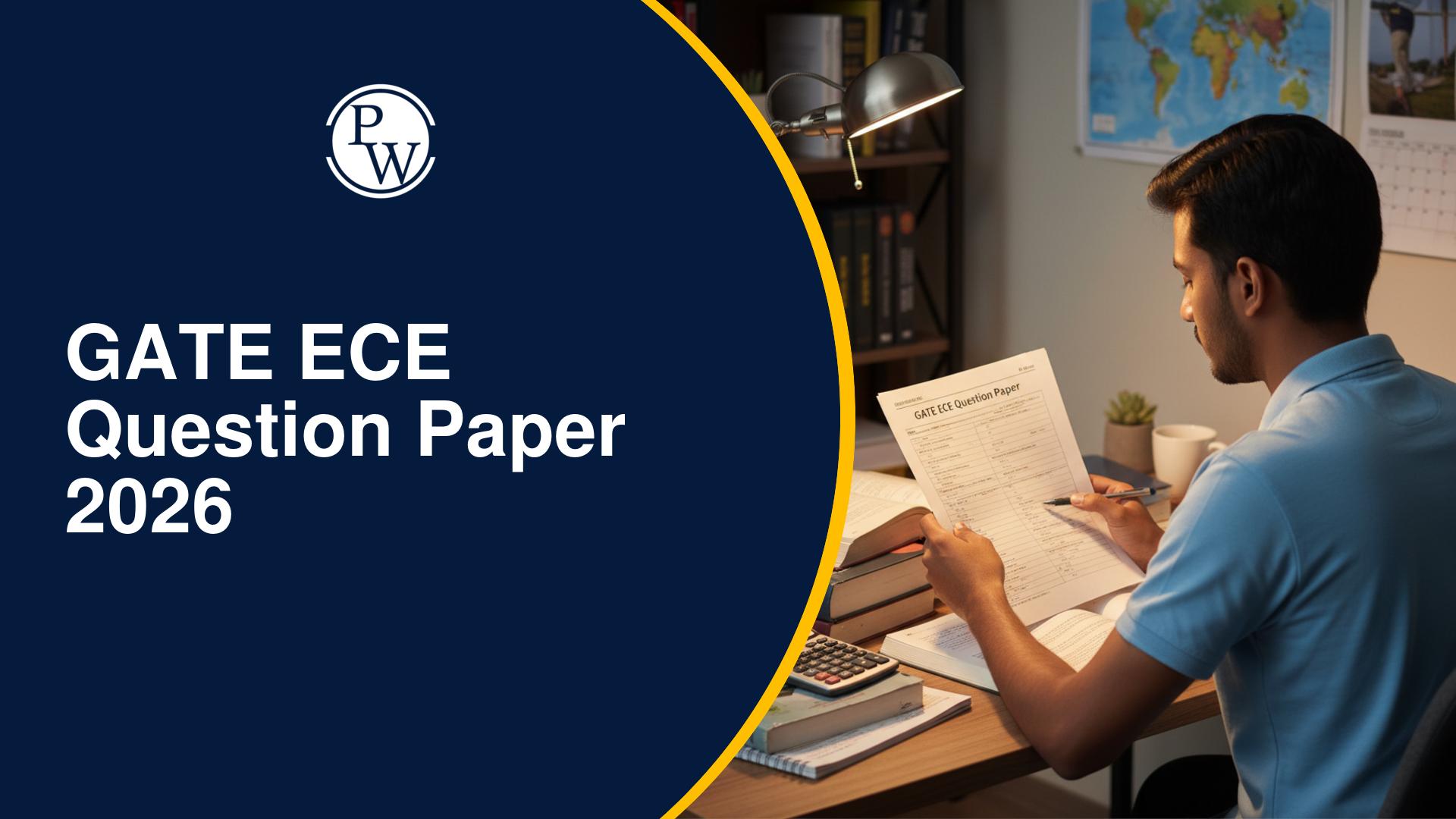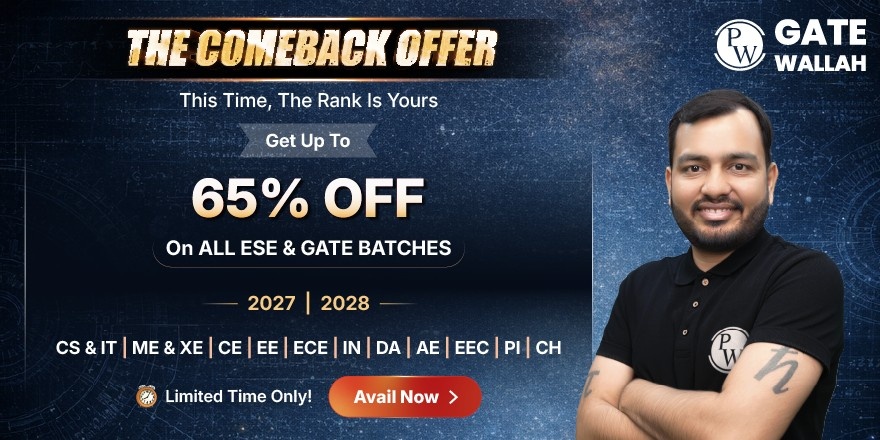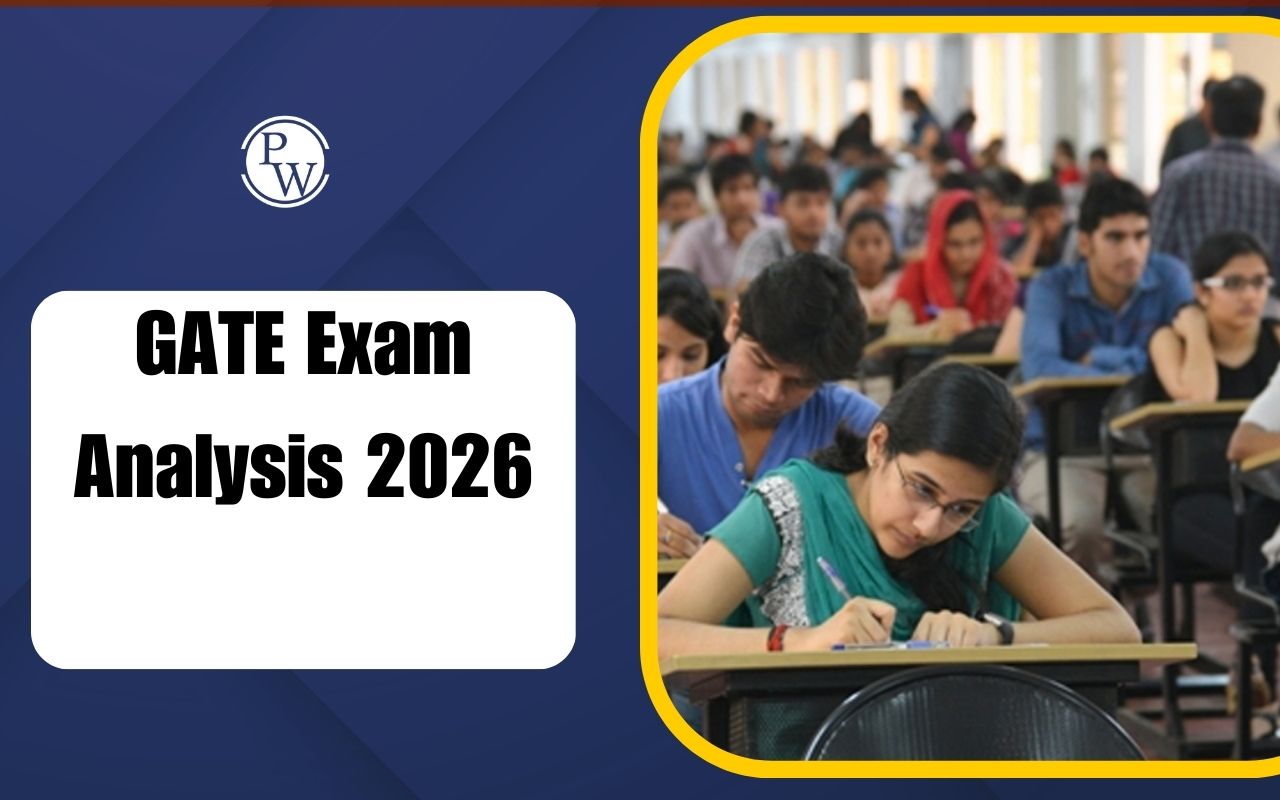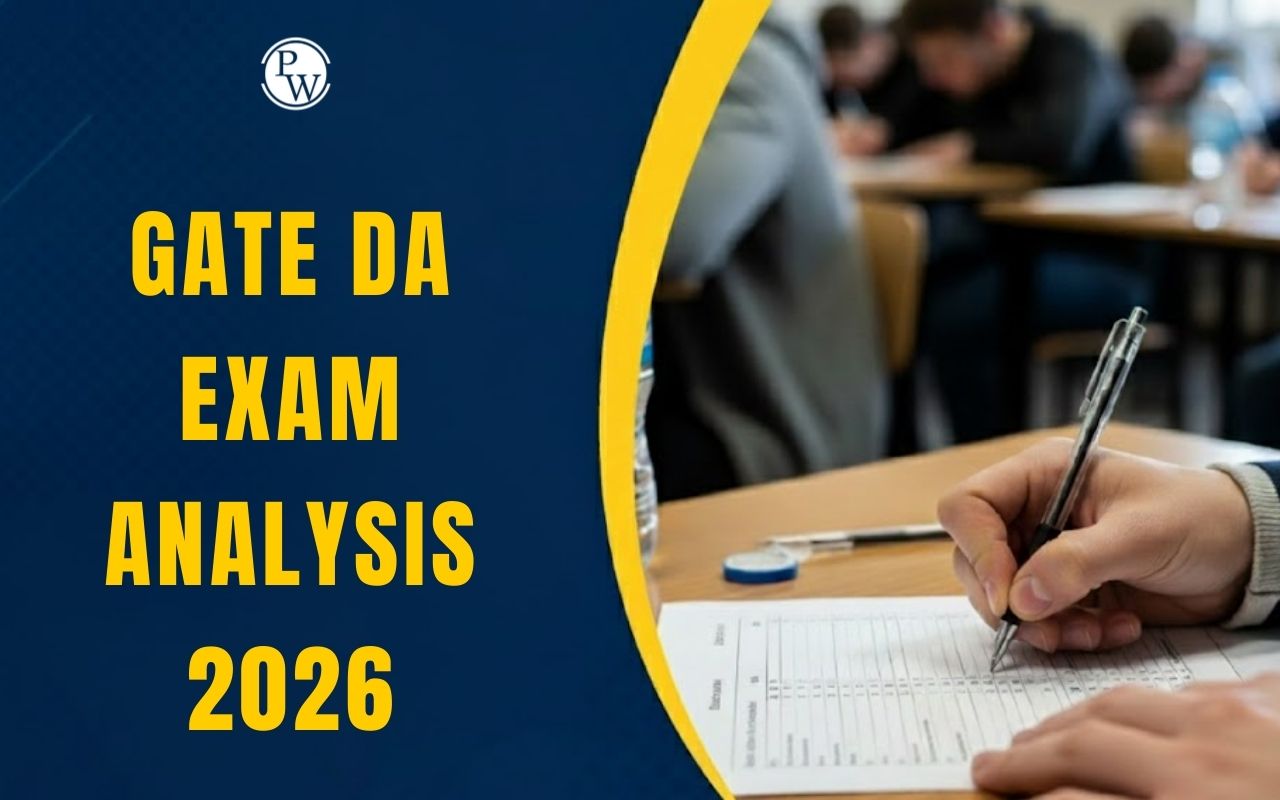
Metallurgy Engineering: Metallurgical Engineering is a vast field that works with a variety of metal-related topics. It is the study of metals and how they can be safely turned into products that benefit humanity, such as computer chips, automobiles, materials for space travel, and more.
What is Metallurgy Engineering?
The study of various metals and how they are used in our daily lives is the focus of the engineering discipline known as Metallurgy Engineering . Metal is extremely significant in practically every aspect of modern life. It includes numerous studies of exotic materials that are used in various sectors, both pure and mixed. The need for materials with great strength and low weight in today's applications makes metallurgical engineering one of the most crucial fields of engineering.
Careers in metallurgical engineering result in numerous advancements in our civilization. Candidates who choose metallurgical engineering carefully investigate the composition, bonding, and numerous environmental factors of metal.
What is the role of Metallurgical Engineers?
Metallurgical Engineers are people who have a comprehensive knowledge of metal extraction, refining, and recycling. Metals used to be employed in machinery and other industrial applications in new manners. A metallurgical engineer's work has a significant influence on this and other related engineering domains.
Also Read: Metallurgy
Metallurgy Engineering Highlights
Check out the Metallurgy Engineering Overview in the table below.
|
Metallurgy Engineering Highlights |
|
| Particulars | Details |
| Branch Name | Metallurgy Engineering |
| Degree | B.E, B.Tech., and M.Tech |
| Duration | B.E and B.Tech - 4 years M.Tech - 2 years |
| Eligibility | Entrance exam |
| Admission Process | Entrance exam and counseling process |
| Entrance Exam | JEE Main, JEE Advanced, VITEEE, BITSAT, GATE , etc. |
| Top Colleges |
|
| Career Options |
|
| Average Salary | Rs. 3 Lakhs to 12 Lakhs per annum (approximately) |
| Recruiting Areas |
|
| Recruiting Companies |
|
Metallurgical Engineering Branches
The following are the three primary branches of metallurgical engineering:
- Physical metallurgy - It deals with ways to solve metallurgy-related problems, such as creating metallic alloys required for various types of construction and manufacturing, among other things.
- Extractive metallurgy - It is the study of extracting metal from ore.
- Mineral processing - It is the extraction of mineral products from the earth's crust.
Metallurgical Engineering Eligibility Criteria for Undergraduate and Postgraduate Programs
The eligibility criteria for both undergraduate (UG) and postgraduate (PG) programs in Metallurgy Engineering in India generally include the following:
For Undergraduate (B.Tech) in Metallurgy Engineering
- Educational Qualification: Applicants must have completed their 10+2 or equivalent examination from a recognized board or institution.
- Subjects: Applicants should have studied the necessary subjects, which often include Physics, Chemistry, and Mathematics, along with English.
- Minimum Marks: Many colleges and universities require students to have a minimum percentage of marks in their 10+2 examinations, often in the range of 50% to 60%. However, this percentage requirement can vary among institutions.
- Entrance Exams: Some institutes may also need students to qualify for specific entrance exams like JEE Main, state-level engineering entrance exams, or institute-level exams.
For Postgraduate (M.Tech) in Metallurgy Engineering:
- Educational Qualification: Applicants should hold a bachelor's degree in Metallurgy Engineering or a related field (B.Tech or B.E.) from a recognized university or institution.
- Minimum Marks: Many universities and institutes require aspirants to have a minimum percentage of marks in their undergraduate degree, typically in the range of 55% to 60%. However, this percentage requirement can vary.
- Entrance Exams: Candidates may need to qualify for entrance exams such as GATE (Graduate Aptitude Test in Engineering) To pursue an M.Tech in Metallurgy Engineering. Admission is often highly competitive, and GATE scores play an important role in the selection process.
Also Check: GATE 2024 Exam Pattern
Metallurgical Engineering Entrance Exam
To pursue a degree in Metallurgical Engineering, students often need to appear for the entrance exam at the national or state level. These exams assess a student's knowledge and aptitude in relevant subjects and help institutions determine eligibility for their programs. Here are some notable Metallurgical engineering entrance exams in India:
GATE Examination: GATE is a national-level exam for various engineering disciplines, including Metallurgical Engineering. Many institutes and universities across India accept GATE scores for admission to their M.Tech programs.
To learn more about the GATE examination, check the following links:
| GATE Exam Date 2024 | GATE Exam Pattern 2024 |
| GATE Syllabus 2024 | GATE Eligibility Criteria 2024 |
JEE: While JEE Main is primarily for engineering programs, it serves as an entrance exam for some colleges offering Metallurgical engineering courses.
State-Level Engineering Entrance Exams: Some Indian states conduct their engineering entrance exams, and they offer Metallurgical Engineering programs as part of their course offerings, such as UPSEE (Uttar Pradesh State Entrance Examination), BCECE (Bihar Combined Entrance Competitive Examination), and JCECE (Jharkhand Combined Entrance Competitive Examination).
Metallurgy Engineering Scope
The need for metallurgical engineering is extremely high in various sectors such as automobiles, energy, transportation, oil, nuclear power, etc. Wherever the production, operation, and maintenance of critical metallic components are required, metallurgy engineers who are experts in these tasks are required.
After completing this course, candidates have the option of starting their own business or easily offering paid consulting services to smaller businesses with less expertise in metallurgy and materials engineering. The electronics, space, bio-medical, and energy industries all have huge demand for materials engineers.
- Metallurgist
- Civil services
- Process Engineering / Corrosion Engineering
- Indian railway
- Non Destructive Testing Specialist
- Steel industry
- Heat Treatment Specialist
- Foundries
- Mineral Process Engineering / Ceramic Engineering
- Manufacturing industries of metals
- Polymer Engineering / Welding Engineering
- Composites Engineering
- Semiconductor Processing Engineering
- Quality Planning Engineering
- Ballistics Engineering
- Metallurgical, Materials Research and Development Laboratories
- Metallurgical engineering
- Nuclear energy field
- Space research/Aeronautic
Metallurgy Engineering Courses
Metallurgical Engineering is a broad course that covers all facets of metal extraction, metal testing, metal refining and processing, etc. The following courses fall under the category of metallurgical engineering:
- Physical Metallurgy
- Extractive Metallurgy
- Mechanical Metallurgy
- Corrosion Metallurgy
- Welding Metallurgy
Chemical and physical metallurgy are the two major areas of this discipline. Chemical metallurgy is mostly involved with the oxidation, reduction, and chemical performance of metals. Physical metallurgy, on the other hand, is concerned with the mechanical and physical characteristics of metals as well as their physical performance.
Suggested Read: GATE Metallurgical Engineering Syllabus 2024, Download PDF Here
Metallurgy Engineering Jobs
A broad scope of career prospects will be available to those who have completed the metallurgical engineering program. Large manufacturers of metals and alloys in India and abroad both employ qualified metallurgy engineers. The following are some of the top job profiles after metallurgical engineering:
- Metallurgist: A metals-focused material scientist is often referred to as a metallurgist.
- Welding Engineer: Welding engineers have the knowledge and experience necessary to create new equipment, welding techniques, etc.
- Manager: Managers are responsible for managing the production of metals in the metal sector.
- Plant Equipment Engineer: Engineers are responsible for designing, planning, maintaining, and installing plant power systems.
- Marketing Executives: They use target audience communication to carry out marketing strategy.
- Metallurgical Laboratory Technician: They help metallurgical engineers with lab tasks daily.
- Quality Planning Engineer: They employ planning work to improve the caliber of any metallic product.
- Researcher: They used to conduct more and more studies to provide new information.
- Senior Process Engineer: The engineer was responsible for the process, effectiveness, efficiency, quality, and safety of the metal products.
Metallurgy Engineering Recruiters
The top recruiters for Metallurgy Engineering are given below-
- Larson's Group
- ISRO
- DRDO
- The Metal Powder Company Ltd
- Hindustan Aeronautics Ltd
- NALCO
- Cable Corporation of India Ltd.
- Utkal Mineral
- Hindustan Copper Limited
- Tata Steel
- HCL
- Jindal Steel
- Steel Authority of India (SAIL)
Metallurgy Engineering Salary
Metallurgical engineers are in great demand in the modern industrial revolution. Engineers get compensated based on the type of job, location, qualifications, and experience of the applicant. Candidates can review the list of roles for each job below, along with the average starting pay for each position.
| Job profile | Average salary offered (annually) |
| Metallurgist | Rs. 5 - 8 lakhs |
| Manager | Rs. 6 - 9 lakhs |
| Welding engineer | Rs. 3 - 5 lakhs |
| Researcher | Rs. 3.5 - 5 lakhs |
| Metallurgical Laboratory Technician | Rs 4 - 6 lakhs |
| Quality Assurance Manager | Rs 6 - 8 lakhs |
Suggested Read: Civil Engineering Explore Career Prospects, Top Engineering College List Here
Metallurgy Engineering Books
Here is the list of important books for Metallurgy Engineering-
| Name of the Book | Author |
| Engineering Materials and Metallurgy | R.K. Rajput |
| Metallurgy of Welding | J.F. Lancaster |
| Physical Metallurgy | Prof. Vijendra Singh |
| Introduction to the Thermodynamics of Materials | David Gaskell |
| Powder Metallurgy Technology | G.S. Upadhyaya |
| Industrial Maintenance and Mechatronics | Shawn A. Ballee |
Also Check: Electrical Engineering: Explore Course, Syllabus, Entrance Exam, Career Scope
Metallurgy Engineering Colleges in India
Below is the list of top colleges in India that offer Metallurgy Engineering -
| College Name | Course Fee | Average Annual Salary |
| Indian Institute of Technology | INR 90,000 | INR 16,00,000 |
| Indian Institute of Technology | INR 90,000 | INR 13,00,000 |
| Bengal Engineering College | INR 1,37,000 | INR 3,20,000 |
| National Institute of Technology | INR 70,000 | INR 7,78,000 |
| Indian Institute of Technology | INR 90,000 | INR 14,00,000 |
| Birsa Institute of Technology | INR 28,000 | INR 6,47,000 |
| College of Engineering | INR 75,000 | INR 10,00,000 |
| Coimbatore Institute of Technology | INR 55,000 | INR 4,99,000 |
| Jain University | INR 1,60,000 | INR 4,16,000 |
| National Institute of Technology | INR 70,000 | INR 8,00,000 |
| Kakatiya University | INR 26,650 | INR 3,00,000 |
| Government Engineering College | INR 1,500 | INR 2,50,000 |
|
GATE Exam 2024 Important Links |
|
| GATE Exam Pattern | GATE Syllabus |
| GATE Exam Date 2024 | GATE 2024 Login |
Metallurgy Engineering FAQs
Which subjects are covered in a metallurgical engineering course?
Which entrance examinations for B.Tech. Metallurgical Engineering is the most popular and accepted for admission to this program.
What are the average course fees for Metallurgy Engineering?
Is metallurgy a good profession?










